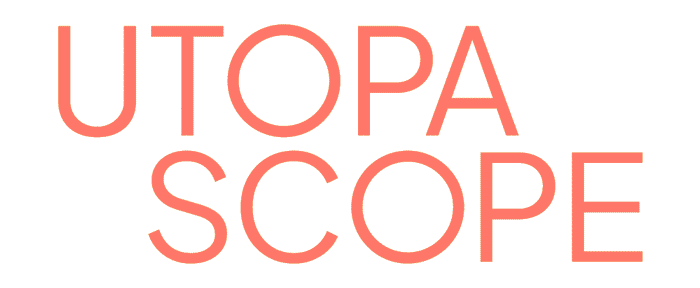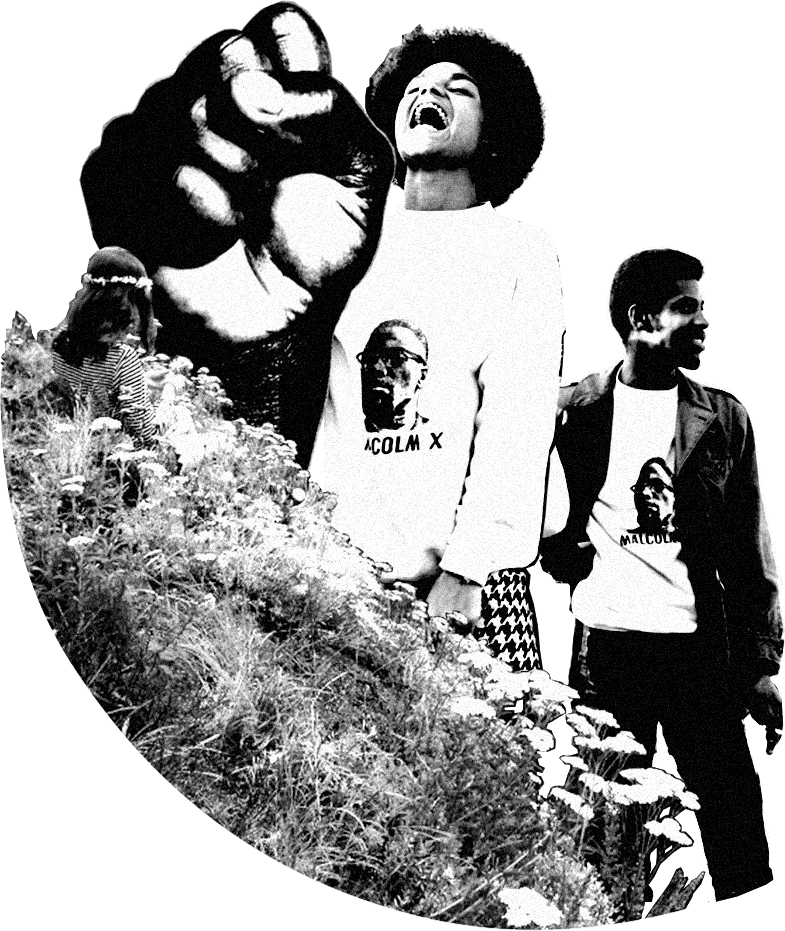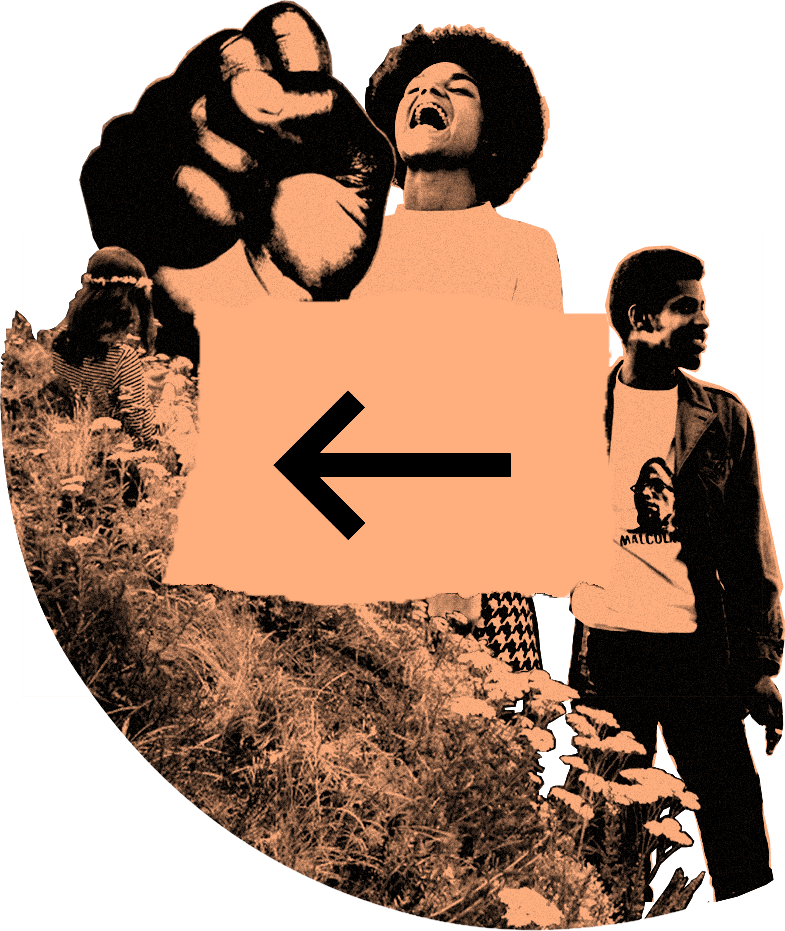Redistribute wealth
vote to organize!
If we seek economic liberation in a way that precludes the need for future redistributive action, we must agitate to repossess the people’s wealth stolen from them by corporations and the super rich. Conversations around wealth redistribution tend to focus on government decisions instead of people power, but they need not.
Throughout the 20th century, the United States and much of the rest of the world experienced an explosion in productivity due to the technological advances of a rapidly-industrializing society. Historically, workers’ wages in the United States increased at the same pace that workers became more productive. That is, until around 1980, when the money workers took home for their hard work became divorced from how much work they did. Wages stagnated so much that today, low-wage income is down 5% since 1970, and middle-wage income is only up 6%. By contrast, very high earners make 41% more. There are numerous causes for this, but the effect has been massive redistribution of wealth from the poor to the already-wealthy, creating more billionaires who profit off of the high productivity of their workers without compensating them in return. The ownership class has attacked the working class continually for the past 40 years in class warfare, and this should be reversed. During the pandemic, this situation has only become more dire: the top 1% has grown by more than $1 trillion since the start of the pandemic, while the workers who earn them that money struggle just to survive.
As a community organizing practice, wealth redistribution is a rare and potentially dangerous form of direct action. However, for the people to ever be truly economically liberated, some form of wealth redistribution must take place. Future histories will look kindly on any movement that threatened to finally end the inhumane 20th and 21st centuries’ wealth baron financial crime spree. The Pentagon even planned war game scenarios in which Generation Z launches a rebellion by privately taxing corporations in order to fight inequality. While this is presented as a nightmare scenario for the government, the plot works as an illustration of possibilities. The movement for economic liberation will continue to evolve as future generations uncover new opportunities. Might a group of community organizers be able to find a way to develop a semi-legal algorithm, similar to what hedge funds do today with the implicit endorsement of the law, which skims a few dollars at a time off of the top of large, wealthy corporations, funneling them into an untraceable cryptocurrency, to be allocated directly to those in need? Might a community pool their resources to file a class action lawsuit against major corporations to the tune of many billions of dollars? Could an organization develop a platform for proposing monetary demands and voting on them to apply highly-visible socio-political pressure on corporations and the state? Could the people form their own fourth branch of government, one that outweighs the other three?
Lobbying for policy change
In cooperative socialism, communities would organize into mass movement networks that pull in a diverse set of practices, like organizing for climate justice, commons councils, worker cooperatives, reparations and rematriation, under an umbrella of wealth redistribution. To achieve this, workers would have to organize in mass and draft entirely new policy proposals that center the relationships between people and the planet as the primary driving force of an economy rather than the abusive form of capitalism we have today. Those policies should be determined through direct, democratic input of the community, but might include:
- a complete divestment from fossil fuels in favor of safer, better, more natural and efficient alternatives like wind, solar, and geothermal energy
- divestment from plastics in favor of reusable materials based in hemp or bamboo
- divestment from harmful materials with a large carbon footprint like cement in favor of natural building materials like hammered earth and stone
- extremely high tax rates on wealthy individuals
- extremely high tax rates on wealthy corporations, or worker control of every corporation
- abolition of inherited wealth
- decriminalization of most crimes
- punitive but rehabilitative measures for wealthy financial criminals
- reparations
- rematriation
- re-establishment of community and regional land stewardship
- creation of new governance by the people in the form of permanent community councils
Policy change is the longest game in wealth redistribution but the opportunity to start new comprehensive systems has never been greater. The pandemic has elevated conditions for the vast majority of people to the point where it is almost required for massive, people-powered policy change to take place. Some of these proposals might fall more into the category of “predistribution,” which would prevent future abuses against the working class, but all are intended to benefit everyone equally, regardless of their political affiliation or aversion to the word “socialism.”
Salary transparency
One small and easily-achievable effort a community organization could engage in is a publicly-available salary transparency database. Any group of people could organize to collect salary and benefits data from large numbers of people, present them in a beautifully-packaged, easy-to-use format, and promote it widely to attract more submissions and to showcase a statistically-significant array of salaries. The organization would have to take care to collect data from workers in different cities, regions, rural areas, with different levels of education, from different backgrounds and genders, and with different levels of experience. The interface of the project should allow for this information to be easily comparable and filterable, to demonstrate pay discrepancies based on race, gender, population density, and other factors.
The end goal should be class unity and should be presented in ways that strive not towards inter-class conflict but to clearly reveal the large shares that are stolen from the working class by the ownership class and by corporations who derive profit off of the excess value of worker’s labor. The project should clearly show that workers are entitled to the value that they create, and that the owners contribute little to nothing to the profit line.
If at all possible, the project should seek to extend beyond international borders, and the creators of the project should seek to collaborate with workers from other countries if at all possible. The Information Age draws us closer together, and the future will see fewer divisions between the workers of the world. Workers are learning more and more that migrating people and workers in other countries do not steal their jobs, but in fact can see that their employees exploit them to the fullest extent of the law until they no longer can, and then move on to the next exploitable workforce. It is time for communities to organize against this.
Debt jubilees
Movements to cancel debts are gaining momentum, even more so now as a result of the pandemic. Communities organizing for a debt jubilee must do so beyond mere advocacy or even mobilization. The state cannot be relied upon to enact debt cancellation in the way that all people want or need, and so the people must force it to happen. One of the primary tools through which the people can make such strong demands is through a general strike.
To organize a general strike, a group of people must organize, plan, and execute a dual-pronged action combining a mass general assembly with one singular, widespread strike. The left in the U.S. calls frequently for general strikes, but they haven’t been as successful as organizers have wanted since the 1930s or 40s. For a general strike to really get the attention of corporate power and the government today, it is estimated that the number of strikers needed to actually achieve demands would need to be relatively high, in the millions. This may sound like a large number, but consider that in 2016 up to 180 million workers took part in a general strike in India, followed by another 250 million in 2020 led by the Communist Party, leftist community organizers, and the Indian National Congress.
A general assembly is similar to a massive version of a commons council, usually derived from a broader array of geographic regions. With modern technology, decentralizing a commons council to incorporate many different voices from different locales is an attainable goal with a little bit of preparatory work. What the general assembly would be used for in conjunction with the strikes would be an ideological support system and democratic structure for the actual strike action itself.
Unlike some other organizing tactics, properly preparing the assembly to vote is key. Direct democracy, when used to determine the means of a general strike, tends to weaken the results of the vote due to the heightened emotional nature of such an undertaking. Asking a large group to vote without sharing sufficient knowledge of circumstances and demands would mean that the demands would likely wind up watered down through deliberation. Experienced labor organizers recommend that this information exchange take place in-person. When the intended numbers of the general assembly needed to decide on an effective strike include thousands of organizers across different groups, this can prove challenging for the organizers. Sharing this information, then, will have to be both distributed and personal, not through Instagram stories nor Twitter threads, fanning out in a great web of person-to-person contacts. Collectively, the general assembly would decide how many strikers they would need alongside them to feel comfortable enough as a critical mass. They would partner with different organizations, unions, student groups, and other assemblies, who would each pledge a certain number of participants to the total. The assembly must put together a list of broad demands to cancel all debt, and find ways to effectively promote it to make the demands known. One of the demands should be a precondition for dropping any eventual legal punishments and fines against the strikers.
Once the assembly votes, though, only a majority should be needed to pass. Each group of people that pledged support should agree to support the demands in the final vote and the collective will, not their individual feelings about the issue.
The general strike itself happens when a critical mass of workers, across as many industries and walks of life as possible, walk off the job and take to the streets alongside students, the youth, those unable to or currently out of work, retirees, the elderly, and any others who are able to join them. Industries should be targeted specifically and strategically to bring the most attention to the demands, for instance, key shipping hubs, fulfillment centers, financial markets, and key fossil fuel installations. The target should shift frequently, or the strike will find itself subject to legal injunctions.
The power to bargain for demands and call an end to the strike should be placed in the hands of a governing body made up of the original assembly. The key is for the organizers in the assembly to be a part of the strike and to absorb the sentiment of the striking body: are they being repressed by law enforcement, facing prison time? Do they need childcare? Are they feeling demoralized? Are they hungry? Do they have a place to sleep? It is best if the strikers are aware of various retaliatory tactics that the law will throw at them before the strike even begins. The strikers should have a mutual aid support system for protecting against these existential threats. General strike bargaining is different from some other forms of strike negotiation. When corporations and the state attempt to negotiate with the strikers, the general assembly will have to vote on each aspect of it individually, needing a majority to pass.
Universal basic income
Universal basic income is another policy typically guaranteed by the state, but one which the people in the U.S. can never expect the state to provide freely, without the people taking significant action on their own. As with a debt jubilee, the people could make a demand for universal basic income and then vote to engage in a general strike, or they could consider other tactics. The idea of a guaranteed minimum income paid out to everyone is grounded in the gulf between individual wages and corporate profit that started happening in the U.S. around 1980. The fight for universal basic income seeks to undo two of the factors that allow corporate owners and investors to continue to build wealth as the working class bleeds, technology and automation. Unionization, forming worker-owned cooperatives, or more aggressive positions, like confiscation, are tactics that seek to reverse this trajectory.
A community organization could be built expressly around confiscating the wealth of the rich. Confiscation is a legal term, differing from a fine in that it intends to redistribute the spoils of a crime to those harmed in the crime or the community in general. In the case of rampant inequality in the U.S., the transgression is a crime against humanity, carried out by corporations and the wealthy against all workers across a broad spectrum.
Groups that receive taxed benefits are those who tend to be more organized than the population at large—in Dwight R. Lee’s words, “the elderly, sugar farmers, and steel producers”—so what is holding every member of the working class back from becoming politically organized in order to force confiscation to fund universal basic income? The class-obsessed United States often misunderstands the parameters of the working class, but in this case, it would be every worker who does not currently own the company, the factory, the bank, the startup, the agency.
All workers across the country, maybe even someday the world, could form a mass worker organization and politically lobby to have funds transferred from the country’s largest technology firms, companies, and wealthiest individuals to the people. Much like the formation of a general assembly, direct democracy on such a large scale might prove challenging, but a challenge that the people should be enthusiastic about engaging in. Counterintuitively, this might look much like many popular forms of social media today, not unlike those they intend to confiscate from. Let all the workers lobby the government for benefits much in the way farms, churches, the oil industry, Comcast, Amazon, and others are all subsidized by U.S. taxpayers. They could write their own proposals, debate them, refine them, block them, and vote them up or down all on one platform. This community should absolutely encourage discourse across the entire political spectrum, and should involve people who identify with both the left and the right. The majority of people in the U.S. support progressive measures, especially when they are worded in a way that does not reference partisan politics. In addition, those progressive measures often benefit people who identify as right wing just as much as they benefit leftists.
The workers should encourage a single cash payment to workers in order to cut down on bureaucracy, and if they vote in favor of it, to replace at least some charitable social services that dole out resources to recipients based on onerous criteria with a single universal basic income.
The objective of this project would demonstrate to the powers that be the distinction between the wants and needs of the people and the policies of the state. It would state demands even if it fell short of forcing them. Seeing the vast disparity between what people want and what the state does would likely inspire many revolutionary acts for the benefit of all people, both large and small.
The pandemic has laid bare extreme wealth inequality. It is clear that the workers power the economy, not the “job creators.” While workers waited 40 years for the economy to trickle down, the wealthy have instead suctioned a massive upward transfer of wealth into their possession. While workers are placed on the front lines, facing dangerous conditions and sometimes dying for pittance wages, the rich have gotten only richer, in many cases accumulating wealth that could never be spent in hundreds of lifetimes. It is time for the workers to find economic liberation through solidarity.




